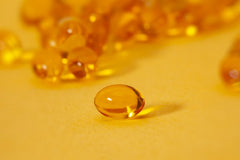
Figuring out a fix for acne is not a sprint—it’s a marathon. Anti-acne products and a targeted skincare routine are steps in the right direction. What else can you do? Try vitamins. The right combination of vitamins, coupled with regular acne care, could help put a hard stop to those pesky pimples.
Can vitamins help reduce acne?
Vitamins are necessary for overall health. The skin is the largest organ in the human body, and it reflects how healthy you are. If you have a vitamin deficiency, your complexion may be dull, dehydrated, or acne-prone.
A doctor or dermatologist could help you identify any vitamin deficiencies or other nutritional shortfalls. But beware of popping multivitamins on your own. Aggressive vitamin supplementation is unlikely to clear your acne, and it might lead to other health issues.
If beating acne is your goal, then topical application may be a better bet. Your dermatologist could suggest vitamin-infused skincare products suited to your skin type and concerns.
The right vitamins for acne
-
Vitamin A: If skincare has a superhero nutrient, this is it. Vitamin A is a retinoid that promotes skin cell turnover, helps with skin elasticity, and boosts collagen production. Since the retinoid supports skin cell renewal, it eases the symptoms of acne. It also minimizes acne scars and pigmentation.
Step up your intake: Green vegetables like spinach and broccoli are rich in Vitamin A. So are sweet potatoes, carrots, dairy products, oily fish, and fruits like mango
-
Vitamin B3: Niacinamide, a form of Vitamin B3, is a key ingredient in many topical formulas. Armed with anti-inflammatory properties, niacinamide soothes the skin by reducing the pain and swelling around acne lesions. The ingredient also lightens dark spots and prevents pore blockages.
Step up your intake: Nuts, seeds, legumes, and fruits like bananas have high levels of Vitamin B3. Other good sources are poultry, fish, and brown rice.
-
Vitamin C: If you’re dealing with stubborn acne scars and
hyperpigmentation, Vitamin C is your friend. Topical application of some Vitamin C-infused formulas could ease the discolouration left behind by old acne lesions. Low Vitamin C levels are associated with slow wound healing, which means active acne lesions could take longer to disappear.

Step up your intake: Citrus fruits like oranges and lemons are excellent sources of Vitamin C. Tomatoes, bell peppers, broccoli, and cabbage also have high levels of this vitamin.
Other vitamins that could ease your acne symptoms
- Vitamin D: The sunshine vitamin is not a skincare standard, but studies have found correlations between low levels of Vitamin D and acne.
- Vitamin E: Although known for its moisturizing powers, Vitamin E could soothe and promote the healing of acne lesions.
- Vitamin K: Anti-inflammatory properties could make Vitamin K a future mainstay of acne-fighting formulas. However, research is needed to confirm its benefits for acne-prone skin.
Can vitamins aggravate your acne?
- Vitamins B6 and B12: High doses of Vitamins B6 and B12 may lead to fresh breakouts or worsen your existing acne.
- Vitamin B7: Also known as biotin, high levels of Vitamin B7 may prevent the absorption of Vitamin B5. An essential skin nutrient, Vitamin B5 supports the skin barrier. So, if its action is hindered you could be at risk of new breakouts.
Will vitamins make a real difference to your skin?
A healthy and balanced diet will help you steer clear of any nutritional shortfalls. If you suspect a vitamin imbalance, check with your doctor. They will prescribe some basic blood work to identify and rule out any deficiencies.
What you should not do is self-treat your acne with vitamin capsules. Supplements may cause liver and gastrointestinal issues. If you’re pregnant, they could harm the foetus. Play it safe and consult your doctor before adding dietary supplements to your routine.
Vitamins are just one step: Do more for your skin
Even as you add vitamins to your daily routine, make sure you have an effective acne care regimen in place. Here’s what that might look like:
- Cleanse, tone, repair, and moisturize twice a day. For best results, use lightweight products like Clearica Anti-Acne Cleanser and Clearica Anti-Acne Cream. These are tough on pimples but gentle on your skin.
- Wash off any perspiration after a session at the gym or on a hot day. If you apply makeup, make sure to remove all traces at the end of the day. Both sweat and cosmetics can clog pores and leave you at risk of pimples.
- Avoid acne triggers. If you wear a helmet, headbands, or tight clothing, the friction could lead to acne. Shampoo your hair regularly to prevent grime, dandruff, and hair products from causing new breakouts.
In short, take your vitamins, follow a skincare regimen, and avoid any triggers. A multi-step approach is the key to acne-free skin.
Disclaimer: This page is for educational and informational purposes only. It is not intended as a recommendation or for diagnostic purposes. Please consult your dermatologist or doctor before acting on any of the information provided here.
